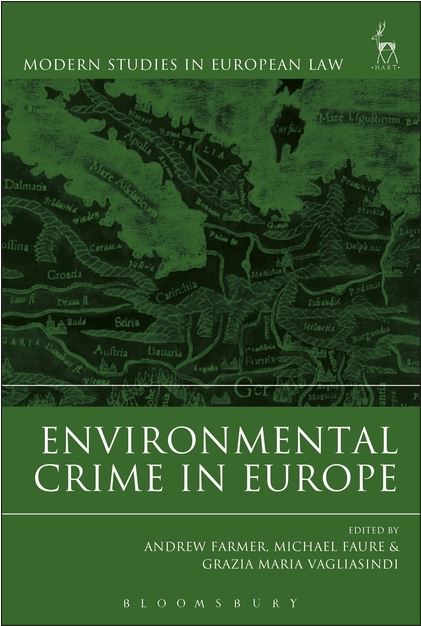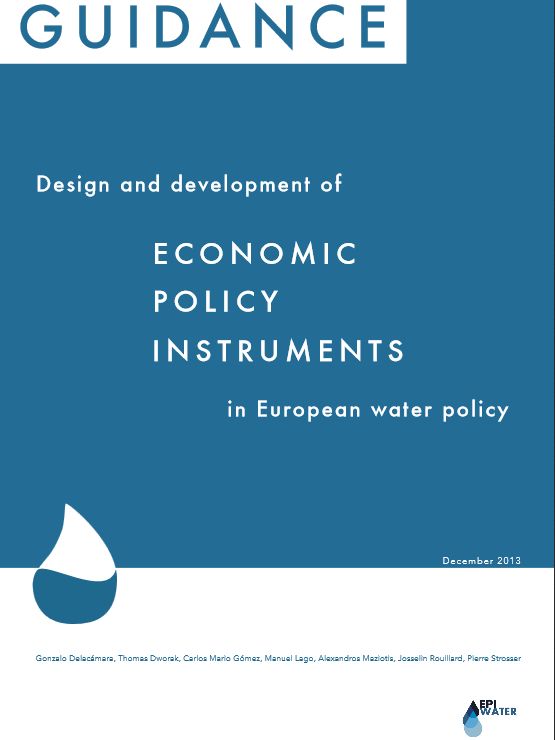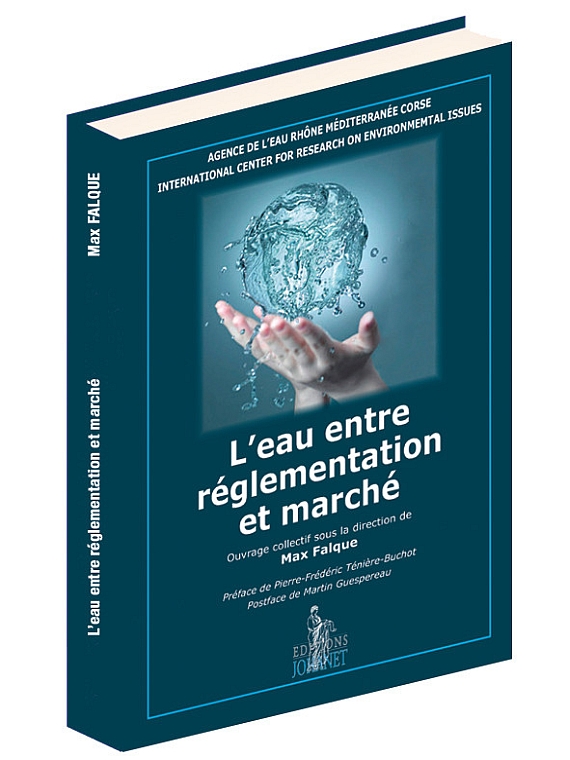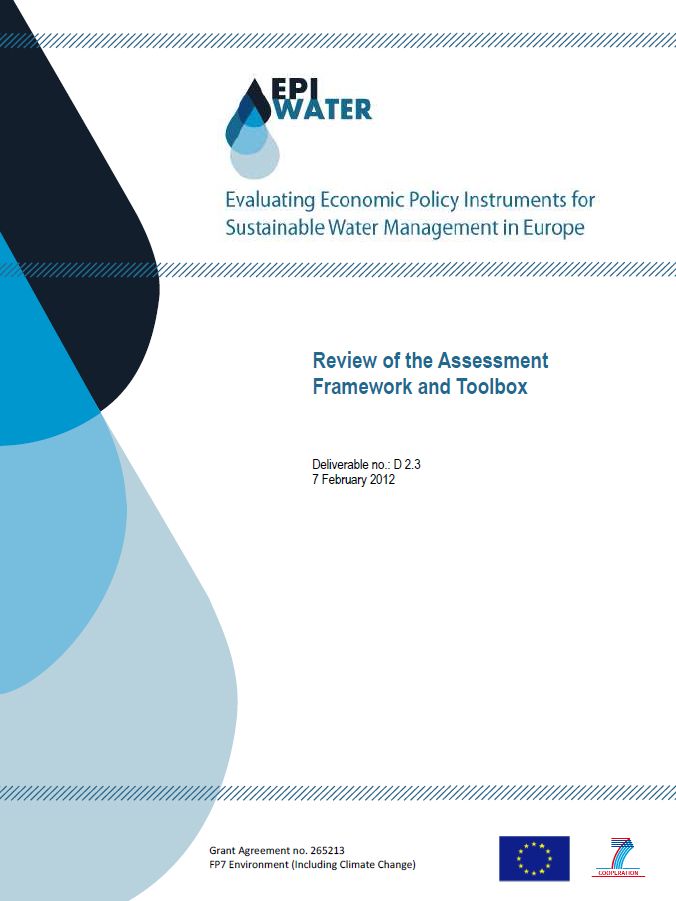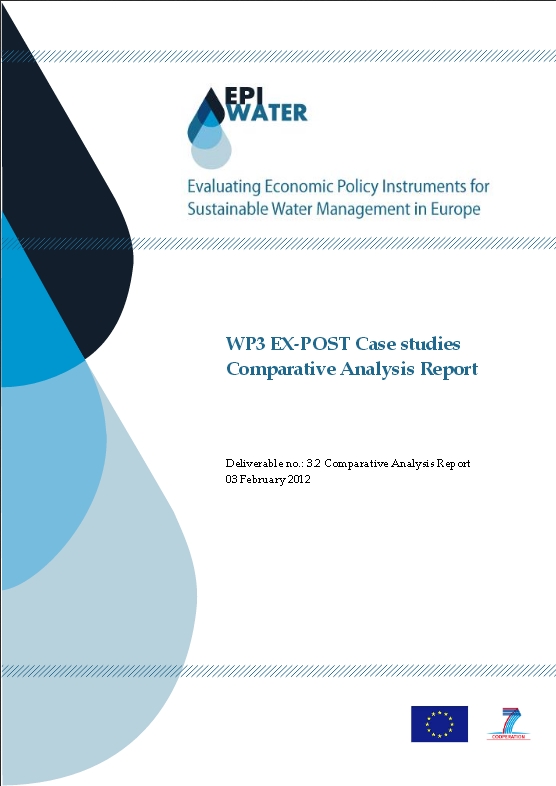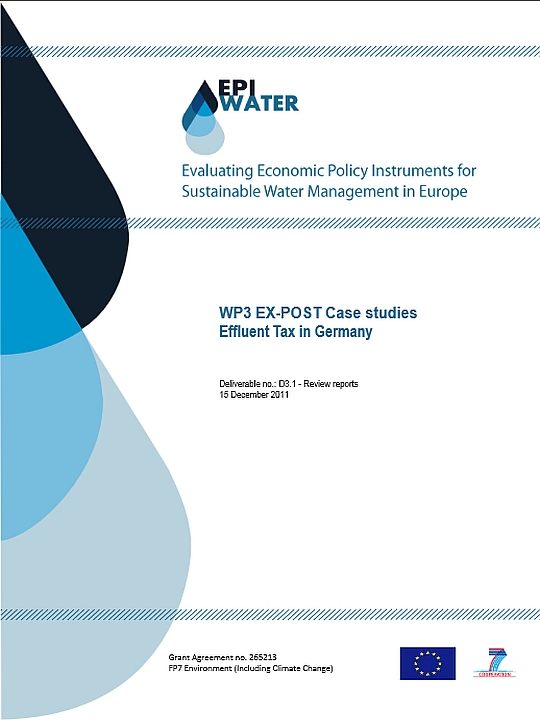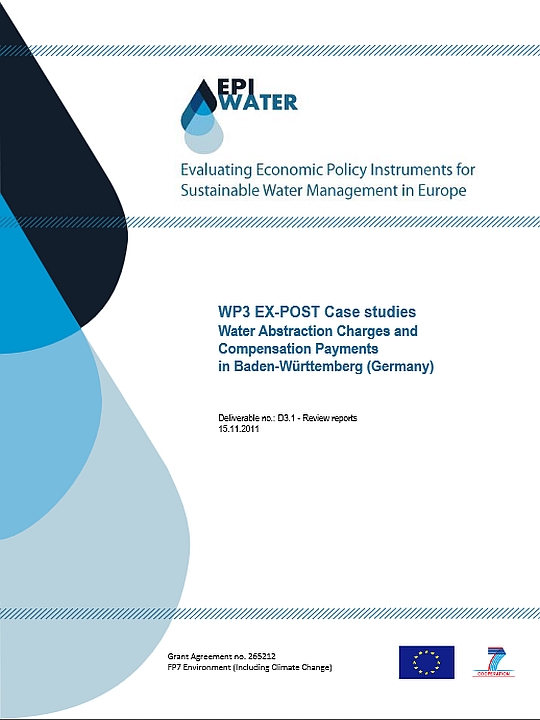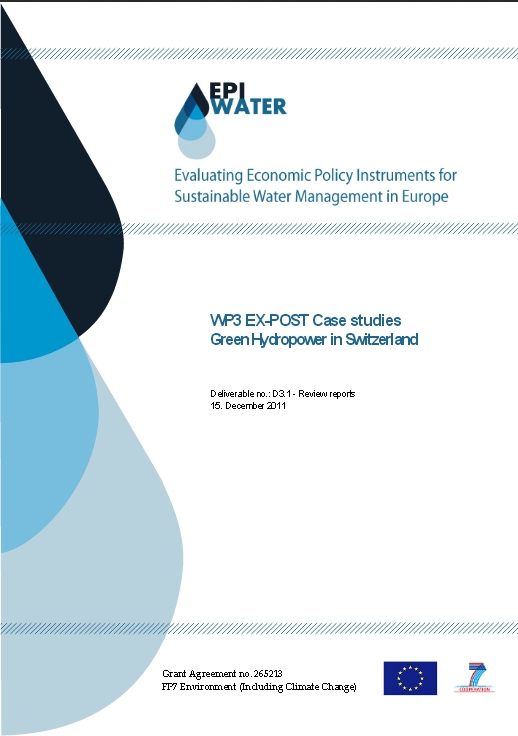Evaluating Economic Policy Instruments for Sustainable Water Management in Europe (EPI-Water)
- Project
- Research Program
- Duration
-
-
The EPI-Water project aims to assess the effectiveness and the efficiency of Economic Policy Instruments in achieving water policy goals and to identify the preconditions under which they complement or perform better than alternative (e.g., regulatory or voluntary) policy instruments. First project results are available for download.
Background
EPIs have received widespread attention over the last three decades, and have increasingly been implemented to achieve environmental policy objectives. However, whereas EPIs have been successfully applied in some policy domains (such as climate, energy and air quality), their application to tackle water management issues (drought/water scarcity, floods, water quality control) are beset by many practical difficulties. Thus, an assessment of the effectiveness and efficiency of EPIs for water management issues and the identification of relevant preconditions is of particular importance to help to overcome these difficulties.
Main objectives
The main objectives of the EPI-Water FP7 project are to assess the effectiveness and the efficiency of Economic Policy Instruments in achieving water policy goals, and to identify the preconditions under which they complement or perform better than other (e.g. regulatory) policy instruments.
The specific objectives of the project include:
- Using a common multi-dimensional assessment framework, compare the performance of single economic instruments or their apposite combinations with the performance otherwise achievable with regulatory (command & control) interventions (such as water restriction/rationing, licensing or permitting), persuasive instruments or voluntary commitments. In particular:
- Analyse the extent to which economic instruments contribute to achieving water policy goals (e.g. good ecological status of water bodies, flood protection, reducing risk & uncertainty in water availability), either directly (via changing use/consumption behaviour) or indirectly (via raising financial resources for implementing water policy protection measures);
- Analyse the efficiency implications of economic instruments, that is to what extent they contribute to an optimal allocation and use of water resources (or goods and services provided by aquatic ecosystems) also in situation in which not all use- and non-use values are known or fully accounted for.
- Identify the preconditions for economic instruments (or group of instruments) to be implementable, effective and/or efficient in given socio-economic, hydrological, cultural and institutional conditions of Europe , be it in isolation or in combination with command and control mechanisms.
- Identify remaining research and methodological issues that need to be addressed, in particular with regards to the further development and use of national accounting, for supporting the design, implementation and evaluation of EPI in the field of water management.
Ecologic Institute in EPI-Water
EPI-Water is organized as seven integrated work packages (WP). WP1 is the project management work package, the WPs 2-5 related to the scientific assessment and application of EPIs, WP 6 aims to link policy and stakeholder engagement, while WP7 includes the dissemination and communication strategy.
Ecologic Institute leads WP3, which includes the review of empirical evidence, experiences and lessons learned from EPIs (ex-post implementation). Following the assessment framework (developed in WP2), the implementation and performance of a diverse range of EPIs are analyzed and comparatively assessed in innovative case studies (EU and non-EU).
Furthermore, Ecologic Institute plays an important role in all remaining work packages.
As of March 2012, Ecologic Institute has completed the following deliverables:
- Proceedings of the First EPI-Water conference, which took place in Berlin on 26 and 27 January 2012
- Overall Assessment Framework (co-author) (WP2), a conceptual report to guide empirical case studies and the overall project
- Three case studies (WP3):
- EX-POST Case Studies: Comparative Analysis Report (lead-author) (WP3), which draws lessons from all the case studies conducted during the third phase of the project (WP3) in Cyprus, Denmark, France, Germany, Hungary, Italy, the Netherlands, Spain, Switzerland, and the United Kingdom, as well as Australia, Chile, China, Israel, and the USA.
Additional deliverables, including all the case studies that have been conducted in the third phase of the project (WP3) are available on the project website.



